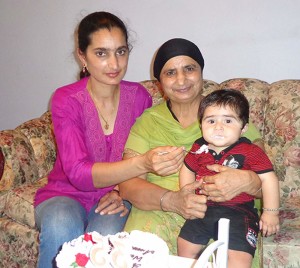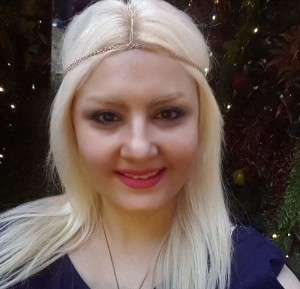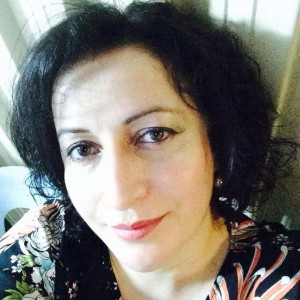Ben Hills
Marites* vividly remembers growing up in grinding poverty in a wooden shack perched on stilts above the putrid waters of Manila Bay, an hour’s drive south of the Philippines’ capital, but a million miles from the glitzy hotels and high-rises of the city’s commercial heart.
One of a family of five, she had little schooling and fell pregnant as a teenager. By the time she turned 21, she was back living in her mother’s shack, having split with her husband – a compulsive gambler and shabu (methamphetamine) user. She was struggling to feed her three children with the paltry pay from her job on an assembly line at an electronics factory.
“It was a hard life,” she says in her sing-song English. It’s an understatement if ever there was one.
When she met Malcolm at a party one night, she had no idea that he would be the man to turn her world upside-down, because they had so little in common. Ten years older than Marites, Malcolm was holidaying in the Philippines. He had Australian residency, but came originally from a Hindu family in Sri Lanka, whereas her family were devout Roman Catholics. She had no idea what he did for a job – it wasn’t until later that she discovered his only income was a disability pension. On top of all that, she spoke not a word of English – when he persuaded her to go on a date, she had to take a girlfriend along to translate his billing and cooing.
By now it was too late for Marites to change her mind about him – she was pregnant.
Nevertheless, Marites thought he was good-looking, he dressed smartly, he appeared to have money… and he said he loved her. That clinched it. When he kissed her goodbye and promised to return from Australia to visit her she thought that was the last she would see of him – but a few weeks later he was back and he moved in to live with with Marites and her family in their hut on stilts. That lasted a few months before Malcolm had a falling-out with her mother, and they had to move into rented rooms.
And that was when she began to have doubts about her new beau. He struggled to find the few pesos for the rent, and often they couldn’t even put food on the table for the children – Malcolm took to attending every wake for a deceased relative of hers that he heard about so that he could snitch funeral food from the sideboard. What little money he did have he would squander in bars or at the casino. But by now it was too late for Marites to change her mind about him – she was pregnant. And so a modest civil wedding was arranged in the local town hall – the Catholic Church in the Philippines does not allow divorcees to remarry.
“I didn’t know what to do. I prayed ‘Maybe God will help me.’”
Somehow they got by, but by 2008 the Philippines authorities caught up with Malcolm – who had overstayed his visa by several years. He was issued with a deportation notice. The only way they could stay together – by now they had three children aged six, four and two – was for Malcolm to sponsor Marites to come to Australia on a spouse visa. Leaving her original three children with relatives in the Philippines, the family arrived in Sydney and moved into a rented house in the western suburbs.
Soon, Malcolm started morphing into a monster. They had arguments about money and about the children’s education. Malcolm became controlling, refusing to let Marites out of the house without him. He wouldn’t allow her to have a mobile phone; he cut off communications with her family. And then he began to hit her.
“I was new here,” says Marites. “I didn’t know what to do. I was crying all the time; so sad. I prayed ‘Maybe God will help me.’”
That was the state she was in when she turned up one day at Philippine-Australia Community Services (PACS), a voluntary social support outfit. Marites is telling me her story in the cramped and cluttered PACS office above a vegetable shop and an Asian grocery in Blacktown’s run-down shopping mall. The service began operating in 1989 when the first waves of Filipino brides began to arrive in Australia.
“Then it was ‘mail-order brides’,” says Nelia Sumcad, a community worker who runs the service. “Now it is e-brides… they meet in chat rooms. It doesn’t always work out once they get here.”
A handsome, neatly-dressed woman, now in her late 30s, Marites was one of about 200 Filipino immigrants – mostly women, but a few husbands and some gay partners – who appeal to PACS for help every year, many escaping from abusive relationships. Sumcad would like to help more, but last year the group lost its modest grant from the Commonwealth – along with similar organisations set up to help Vietnamese and Thai women. It is now staffed by volunteers and relies on charity to pay the rent.
“It was only a little cut. Because the children were watching and I didn’t want to frighten them.”
Like most of these women, Marites had no idea of the support services available to her in Australia – nor of recent reforms designed to encourage the police to intervene in cases of family violence. PACS helped find a temporary place in a refuge for Marites and the children. For the next two years, she and Malcolm had an on-again off-again relationship.
The violence escalated until one day Malcolm tracked Marites down, broke into the house where she had again sought refuge, and attacked her, ripping the sleeve of her housecoat and seizing her around the neck in an attempt to throttle her. The police were called. They videotaped the bruises and helped Marites take out an Apprehended Violence Order (AVO) against Malcolm, ordering him to stay away. He breached this court order several times.
The final straw came one day when he put a bread knife to Marites’s throat, and she retaliated by grabbing a pair of scissors and stabbing him. “It was only a little cut,” she says “Because the children were watching and I didn’t want to frighten them.”
Malcolm went to jail, and in 2013 they were divorced. Fortunately for Marites, she had been in Australia for more than two years and was married to an Australian citizen, meaning she qualified for permanent residency – unlike many other Filipina women who enter Australia on ‘bride visas’. Marites has since pulled her life together. She took a carers’ course and is now working in a nursing home. The children, now aged from 10 to 15, have done well at school and, although they miss their father, have become “little Aussies”.
II
I was astonished, when I began researching this story, to discover how common stories like Marites’s are among immigrant spouses who come to Australia with hope in their hearts, and finish up damaged, discarded, destitute – and, all too frequently, dead.
To have a violent partner is bad enough. But imagine how much worse it would be if you were thousands of kilometres from your family and friends, spoke no English, had no money, had no idea of the law and no means of accessing support services – and were threatened with deportation if you complained.
Close to 50,000 people come to Australia every year on partner visas of one sort or another. The overwhelming majority are women who were already in longstanding marriages overseas, and whose husbands – typically – transfer to Australia for work. But there are no statistics publicly available on foreign citizens such as Marites who marry Australian residents overseas, or who come to Australia to get married on student or work visas.
“Gender inequality is at the root of this. It doesn’t matter whether you are Sudanese or Greek.”
In order of popularity, the majority of those on partner visas come from the United Kingdom, followed by China, India, the Philippines and Vietnam. From the Philippines alone, there are about 200,000 people living in Australia, of whom a substantial number have come here as brides. Put ‘Filipina brides’ into a search engine and the first 23 entries to come up are along the lines of Filipinocupid.com, which boasts that it has “… helped thousands of men worldwide to find their perfect Filipina bride… 2 million+ Filipinas looking for love”.
The rate of domestic violence across all Australian communities is guesstimated at about 1 per cent – one woman in 100 can be expected to be a victim every year, resulting in an extraordinary police call-out to 650 incidents of domestic violence every day. But no-one keeps track of their nationality. Is there a higher rate of domestic violence among families referred to in academic circles as “from a culturally and linguistically diverse background” (CALD)?
Experts such as Melbourne University’s Dr Cathy Vaughan, who heads a team which has just completed the most comprehensive survey on violence against immigrant women – they interviewed 46 women from 26 countries – is careful not to point the finger at any nationality. “Gender inequality is at the root of this,” she told me. “It doesn’t matter whether you are Sudanese or Greek.”

Left: Dr Cathy Vaughan’s team interviewed 46 women from 26 countries. (Photo: Twitter)
Right: Campaigner against family violence, Jane Corpuz-Brock. (Photo: courtesy Jane Corpuz-Brock)
The women Dr Vaughan’s researchers interviewed came from India, the Philippines and Vietnam, but also from countries as diverse as Nepal, Burma, Sudan and Greece. Some came to Australia as spouses, but many arrived as students, fiancees, partners of skilled workers or on bridging visas – these women were not entitled to Centrelink payments, could not hope to obtain permanent residency, and many had nowhere to turn but to charitable organisations to escape the abuse.
The most extreme case Dr Vaughan came across involved a woman who had been brought to Western Australia by her husband, but had not been allowed to set foot outside the house for four years. She was subject to physical and sexual violence, and was banned from taking English classes – even from watching TV. She used to wait until her husband went to work, then turn on the TV and teach herself English by watching Ricki Lake – a daytime tabloid current affairs show. When she heard her husband’s car in the driveway, she would hurry to turn it off and cool the TV down with her hairdryer so that he would not suspect.
Pakistan’s parliament did not legislate to outlaw ‘honour killings’ until October 2016.
Eventually she was rescued by a suspicious Centrelink caseworker to whom she secretly showed her bruises, but even after she left home, her husband pursued her until he was arrested and jailed for assault. The woman was only able to finally escape from him by moving interstate and changing her name.
Dr Vaughan believes that such violence is just as frequent among Anglo-Australian families. However, the Victorian Royal Commission into Family Violence, which delivered its massive 1900-page report in March 2016, did find that “… people from CALD communities are disproportionately affected by family violence and are more likely than people of Anglo-Australian background to face barriers to obtaining help”. “Social and economic marginalisation”, particularly among newly-arrived women, added to their troubles, as did the fact that almost half of them did not speak English.
The commission’s report went on to identify particular kinds of violence directed especially at women of African, Middle Eastern and South Asian background, such as forced marriage, female genital mutilation and “dowry-related abuse”. I covered a particularly horrific case of the latter in Sydney last year when a newly-arrived Indian bride named Parwinder Kaur was burned to death after a dispute over dowry payments from her parents to her in-laws. A NSW Coroner found that “a known person [has] committed an indictable offence”, but suspended the inquest without making a finding or naming the “known person”.

Parwinder Kaur (left) with her mother Malkeetaur Kaur and nephew Manraag. (Photo courtesy Amanpreet Kaur)
It is also worth noting that Pakistan’s parliament did not legislate to outlaw ‘honour killings’ until October – October 2016, that is, not October 1816. Until then husbands who murdered their wives for real or imagined transgressions or for failing to come up with a large enough dowry – around 500 a year of them – were able to walk free, without charge, if they were ‘forgiven’ by their deceased wives’ families, which usually involved buying them off with money.
The bare statistics collected by Australia’s Department of Immigration and Border Protection (DOBP) and published in its annual report tell their own story. In the three years to 2015, nearly 2000 foreign-born spouses – the overwhelming majority of them women – were granted permanent residency on the grounds of family violence. Cross-matching them by nationality with partner visa applications, women from the Philippines and Vietnam were more likely to be the victims than women from the UK, and women from China were more than twice as likely to be assaulted by their partners – even though immigrants from the UK vastly outnumber any of the other three nationalities.
“Gender inequality occurs across all sectors, all levels of income and ethnicity.”
The only hard data on migrant brides who have actually been murdered by their partners were compiled some years ago by the Brisbane-based Centre for Philippine Concerns – Australia (CPCA). Scouring news reports and court records between 1980 and 2011, it found that, on average, more than one Filipina per year dies as a result of family violence.
In 35 cases the group investigated, 27 Filipina women and seven of their children were killed, two women died in a mass suicide, five women and two children disappeared, and one woman survived an attempted murder. Twenty-one of their partners – all but four of them non-Filipinos – were convicted of murder or manslaughter, and two committed suicide, one after killing his child and attempting to murder his wife, and a second after claiming that his wife had “disappeared”. Only two of the men charged were acquitted, and one of these was later convicted of the murder of his first wife.
You only have to look through Sydney newspaper cuttings from the last year or two to see the terrible toll of domestic violence on women from a variety of ethnic backgrounds:
> In October 2015, Amir Darbanou, 42, was charged with the murder of his wife, a 35-year-old hairdresser named Nasrin Abek. The couple was originally from Iran, but had been living in Sydney for four years. Police said that they had separated, and Darbanou had stalked Abek before stabbing her to death in her Potts Point apartment – allegedly because she had converted from Islam to Christianity.

Parwinder Kaur (left) with her mother Malkeetaur Kaur and nephew Manraag. (Photo courtesy Amanpreet Kaur)
> In September, a teenaged relative discovered 35-year-old Tasmin Bahar, who moved to Australia from Bangladesh in 2009, strangled in the bathroom of her former family home in the Sydney suburb of Smithfield. Nearby, her former partner, Dave Pillay, had hanged himself – they had separated three weeks earlier after Tasmin complained to the police that he had threatened her with a knife. Police said that they were treating it as a murder/suicide. Their three-year-old daughter, who was in the house at the time and apparently witnessed her parents’ deaths, is receiving counselling.
> In August, a NSW Supreme Court judge sentenced Mokhtar Hosseiniamraei, a 34-year-old Iranian migrant, to 21 years’ jail for the ferocious murder of his estranged wife, Leila Alavi, a 26-year-old hairdresser. Hosseiniamraei had stabbed her 56 times with a stolen pair of scissors as she sat in her car in an Auburn car-park in January 2015. The court heard that Alavi had left him and taken out an AVO after he had threatened to kill her. She had applied to a dozen refuges to shelter her, but all were full. In his taped confession to police, Hosseiniamraei said he had killed Alavi because “she did not obey the rule of marriage”. Justice Robert Allan Hulme said that Hosseiniamraei had shown a “breathtakingly arrogant and misogynistic attitude” to his wife’s decision to determine her own destiny.
> In March 2015, Haydar Haydar, a 58-year-old taxi-driver, handed himself in to Kogarah police and was charged with murdering his wife, Salwa, a 45-year-old anti-smoking counsellor, and wounding their 18-year-old daughter, Ola. Salwa’s family had fled war-torn southern Lebanon in the 1980s and sought refuge in Sydney, where she married and raised four children. A year earlier Salwa had left her husband after repeated physical abuse and gone to live in a house she rented in Bexley. Police alleged that Haydar had entered the house armed with a knife, stabbed his wife to death, and wounded his daughter by stabbing her hands when she tried to protect her mother. It was the seventh domestic violence killing in NSW in three months, and – ironically – it occurred two days before the NSW Government appointed Pru Goward as its first Minister for the Prevention of Violence and Sexual Assault.
III
Jane Corpuz-Brock is another veteran campaigner against family violence in the immigrant community. From an office in Harris Park in Sydney’s western suburbs, she runs the State Government-funded Immigrant Women’s Speakout, founded in 1982 to provide “support for women escaping family violence.” Although Corpuz-Brock is originally from the Philippines, Speakout helps women of any nationality.
Over the decades, the group has provided refuge and social and legal support for thousands of domestic violence victims from more than 100 ethnic backgrounds. Its three social workers helped 265 people in the past year alone – and the group plans to open its own refuge in Parramatta to cope with the demand.
“It happens to all nationalities,” Corpuz-Brock says over a cup of coffee at Sydney’s Trades Hall where she is due to speak on the issue to unionists. “Even Anglos, English, French, Italians. Gender inequality occurs across all sectors, all levels of income and ethnicity.”
Corpuz-Brock talks about a recent case involving a woman living in India who was “imported” to Sydney after an arranged marriage to an Indian man living in Australia. When she arrived, the woman discovered to her dismay that she was expected to live with in-laws and become their domestic slave. During the day she was required to do menial tasks such as chopping vegetables at the family restaurant. At night she was forced to do the cooking and laundry for the family at home, whilst caring for her husband’s five young nephews and nieces.
“They look on marriage as a career, a contract. Suddenly that contract is breached…. They will not accept that.”
The woman begged her parents for help, but they refused to buy her out of the relationship and told her: “They will change – keep praying.” Finally, after her mother-in-law beat her with a soup ladle, the woman went to Speakout for help, which found her a place in a refuge. However, says Corpuz-Brock, she is now marooned between two worlds. She wants nothing to do with her abusive in-laws, but she cannot return to India “… for fear of being cursed or ostracised. They look on marriage as a career, a contract. Suddenly that contract is breached and their dreams are shattered…. They will not accept that.”
Then there was the Anglo Australian guy of 67 who married a Filipina 30 years younger than him and brought her out to Australia where she discovered he expected her to indulge him with ‘kinky sex’ and watch pornographic videos. When she refused, telling him “I am not a prostitute”, he threw her out of the house, changed the locks, and is trying to have her deported, having sworn a statutory declaration falsely claiming that she had been unfaithful and that she had abused him.
Just as sinister is the involvement of organised crime in smuggling women into Australia to be forced into prostitution. Sex trafficking in the past involved mainly women from the Philippines and Thailand, says Corpuz-Brock, but recently Speakout had come across women from Africa who were brought into Australia and forced to work in brothels. “They try to keep it secret because these men are gangsters and they are afraid they will be killed.”
Families were planning to send four Australian-born teenage girls back to Iraq, to marry their first cousins.
She cites one case known to Speakout of a Ugandan man, in Australia on a 457 work visa, who returned to Africa to recruit women for sexual exploitation. He returned to Australia with one girl, whom he sponsored on a ‘fiancee visa’, married, and then installed in a Sydney hotel room, where for three days she was forced to have sex with a succession of men. She escaped when an alert cleaner twigged that something was wrong and called the police. It transpired that the girl was only 15. She has now been granted a special criminal justice visa, as she is to give evidence against the man who brought her to Australia under false pretences and became her pimp.
Corpuz-Brock is also deeply concerned that the prevalance of forced marriage – not arranged marriage – is growing particularly among Middle Eastern communities. Speakout was recently called in to help with an Iraqi community where families were planning to send four Australian-born teenage girls, aged 15, 16 and 17, back to their ancestral home in Iraq, to marry their first cousins.
“They had seen it happen before, and the girls had children born with disabilities,” says Corpuz-Brock. “They didn’t want to spend their lives caring for children with disabilities and they shouldn’t have to.”
Some women affected will be entitled to stay in Australia under special ‘family violence’ provisions. In 1994, after a string of sensational media reports about murdered brides, and even a book about the issue, the Commonwealth Government decided that it was cruel to – in effect – force a woman to stay in a violent household in order to gain her right to residency in Australia. Under changes to the Immigration Act designed to stamp out fake marriages, a foreign-born woman must live with her husband for two years in order to obtain permanent residency. All too often, an abusive husband would threaten his wife with deportation if she tried to seek help.
“I didn’t start to see him in his true colours until I arrived in Sydney.”
The 1994 amendment to the law allowed women who come to Australia on partner visas – but only those who are married, not fiancees or girlfriends—to apply for permanent residency if they can produce “acceptable evidence” such as an AVO that they have been the subject of domestic violence. And the definition of violence is not limited to physical harm – recent changes to the legislation have extended it to include “psychological and/or financial abuse.”
Take the case of Aisha. As a single woman in her early 50s living with her family in Beirut, she was introduced by a relative to a Lebanese man who had been living in Australia for more than 30 years and was looking for a partner. They chatted on the phone, she visited him in Sydney and he visited her in Beirut, and they were married in a Catholic church there. After a year’s courtship, she thought she knew him.
“My first impression was that he was very well-mannered, very respectful, a quiet, calm man… and very generous,” she says through a telephone interpreter service, sitting in her Housing Commission flat with a copy of an Arabic-language Bible open on the TV table. “I didn’t start to see him in his true colours until I arrived in Sydney.”
Fifty-seven men had sponsored at least three partners, and one had sponsored seven different women.
Her husband disliked her leaving the house without him, he was mean with money, he was so jealous that he registered her mobile phone in his name so that he could check up on who she was calling. When she went to take English lessons he would follow her and spy on her with binoculars. Then, she says, he began to shout abuse at her and hit her.
With the help of one of her teachers, she finally sought refuge with Speakout and applied for an AVO. She had no evidence of the physical abuse she says she suffered – she had not sought medical help and had no photographs of the bruises – but the court was persuaded by evidence of his having stalked her and granted the AVO. Aisha has now successfully applied for permanent residency on the grounds of family violence and wants to improve her English and train as a child-care worker.
IV
In the 25 years since violence towards immigrant wives and their children first became an issue, there have been numerous attempts to change the law to protect them – and more are in the works, although to workers in the field such as Sumcad and Corpuz-Brock it is often too little, too late and takes too long.
In the early 1990s, the then Department of Immigration and Ethnic Affairs, alarmed at media reports of serial sponsorship of foreign brides by unscrupulous and violent men, commissioned a study known as the Iredale Report, which identified 110 men who had sponsored more than one fiancee from abroad – principally from the Philippines, Fiji and Thailand – of whom 80 had subjected at least one of their partners to abuse. Fifty-seven of these men had sponsored at least three partners, and one had sponsored an extraordinary seven different women.
There was initial resistance by the government to doing anything to prevent this systemic abuse. In 1993, Senator Nick Bolkus, the Minister for Immigration and Ethnic Affairs in the Keating government, raised this objection to preventing serial sponsorship: “I can’t draw the line after three or four marriages and say ‘That’s it, you can’t have any more’. I think that would be social engineering at its worst.”
However, common sense and decency eventually prevailed and in 1994 the Immigration Act was changed to make it illegal for anyone to sponsor more than two women on partner visas in a lifetime – and the second application must be at least five years after the first. Some Australian men still do sponsor more than one foreign partner – there were nearly 300 between 2005 and 2011 – but the worst abuses of the system appear to be over.
A second important legislative change to protect women has been held up in a parliamentary logjam for more than a year. Having lapsed when parliament was prorogued for the 2016 mid-year election, a proposal to ban anyone with a history of violence from sponsoring a partner is currently before a Senate committee and seems unlikely to become law until later this year, in spite of submissions urging urgency.
Dr Kaye Quek, of the Coalition Against Trafficking in Women, Australia, wrote this in a submission to the committee: “For far too long, the problem of abusive men using the family visa system to exploit migrant women has gone unnoticed and unaddressed. In 2011, [a government report] documented the use of prospective spouse visas by Australian men to facilitate forced and servile marriages…. There have been numerous cases in which men with violent histories have been allowed to sponsor the migration of a woman from overseas… and enacted horrific forms of violence against her, at times culminating in murder.”
“You should first know the person you are marrying. Really know them.”
There is also hope that, as a result of the Victorian Royal Commission, the Commonwealth and the states will provide improved access to support services and crisis accommodation, better prevention programmes and more resources for the police and legal services. In Victoria, Premier Daniel Andrews has announced that the state will adopt all 227 of the commission’s recommendations, budgeting to spend $572 million over seven years, of which some $48 million will be directed to services specifically for immigrant women.
And at the annual premiers’ conference in Brisbane in October, the Prime Minister, Malcolm Turnbull, announced an additional $100 million programme to combat what he called “… this scourge, this violence against women and children, which tears… at the fabric of society, which tears at our conscience.” $25 million of this will be directed at Aboriginal and Torres Strait Islander communities, but there was no specific announcement of help for migrant women.
All this is, of course, welcome to women such as Marites and Aisha – although it has come too late to help either of them. When I asked Marites what she had learned from her experience and what advice she would give other Filipinas thinking of marrying an Australian, she thought for a while and then said:
“You should first know the person you are marrying. Really know them. Otherwise, some of them, they will treat you like their slave.”
* Some of the names in this story have been changed.
If you or someone you know is impacted by sexual assault, domestic or family violence, call 1800 RESPECT on 1800 737 732 or visit 1800RESPECT.org.au. In an emergency, call 000.For more information about a service in your area, download the DAISY app in the App Store or Google Play.
If you’re suffering from mental health issues and need immediate support, contact: Lifeline 13 11 14 – Beyond Blue 1300 22 4636 – MensLine Australia 1300 78 99 78.
Publishing Info
Pub: SBS Online
Pub date: 2016



